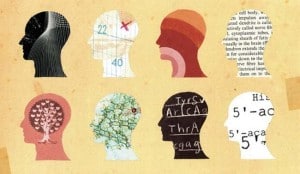
People with disabilities make up the largest minority group in the US. As many as one in five Americans have a permanent and life-altering disability.
Yet, more often than not, we are left out of conversations in both the public and faith-based sectors. Most congregations in the US have nothing close to a demographic of people with disabilities that matches our national statistics. Over eighty percent of churches have no disability ministry whatsoever.
Even when we are in your churches and school and communities, though, are we treated like equal humans? Many people with disabilities experience a society that attempts to ignore our existence. Many of us have embraced a “less-than human” self-image. It is what is told to us when we are stared at in public, and it is what is told to us when we are shown we are not welcome.
Many people with disabilities experience a society that ignores our existence.
Many “ism” terms have been accepted in our public discourse (racism, sexism) but the disability community is in desperate need of “ableism” to be acknowledged by the masses—and especially by the Body of Christ. When we look at Scripture we see that people with disabilities are constantly present in Christ’s ministry to show God’s glory. As Jesus says in the Gospel of Luke:
“Go quickly…find the blind, the lame, and the crippled…and compel them to come in!”
Christ never loses sight of the humanity and the “Imago Dei” found in people with disabilities. In many congregations, people with disabilities are treated as “charity cases” and “service projects;” what the Church needs is to embrace us as co-laborers of love and of the Gospel.
Help us to battle ableism in the Body of Christ, and in society at large. Allow us to battle with you to share the Gospel. Every human is designed by God with a beautifully written story in mind. Help us to live out our stories, and we will help you live yours as well.
The disability community is in desperate need of “ableism” to be acknowledged by the masses—and especially by the Body of Christ.
People with disabilities want to be seen as wholly human, in fact we need to be seen that way. Get to know our stories, our hopes and dreams. Develop real relationships with us so that we can mutually seek the Cross together.
You can ask me anything about my disability, but not every person with a disability is the same. So try giving Google a chance to work out some of your curiosities and questions—I am disabled, and I sure don’t know everything! Keep an open mind, and please don’t presuppose that you know everything there is to know about disability and accessibility. It is through a posture of humility and open-mindedness that we all can learn and grow, together.
Matt Curcio is a published writer and speaker. In 2016 he founded Break the Roof, a nonprofit disability advocacy organization. Matt’s mission and ministry is to use his gifts and experiences to help people of all abilities break open the roofs placed over their potential. For more information, contact Matt.


